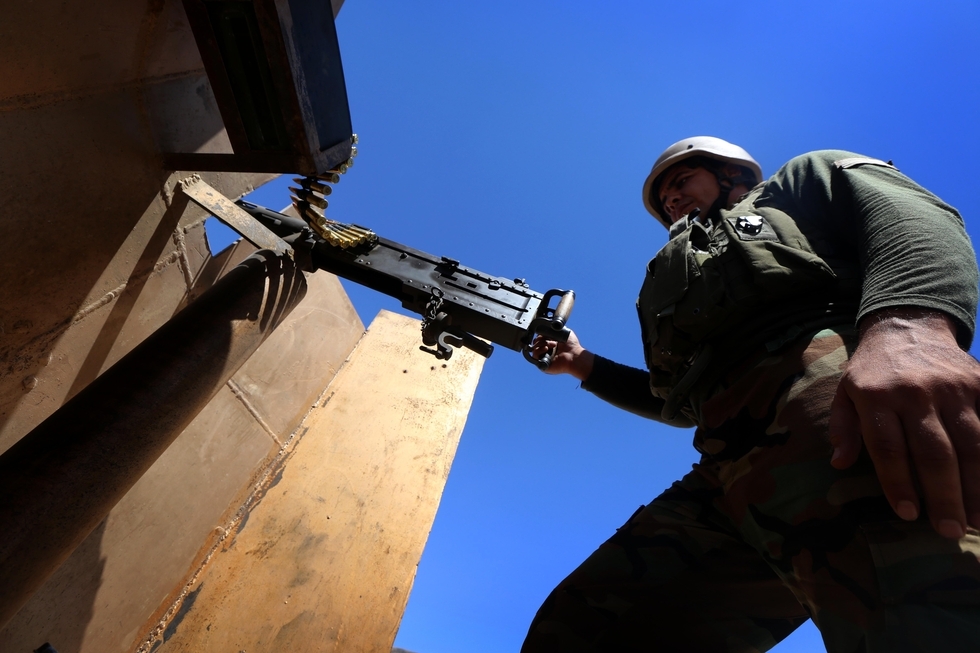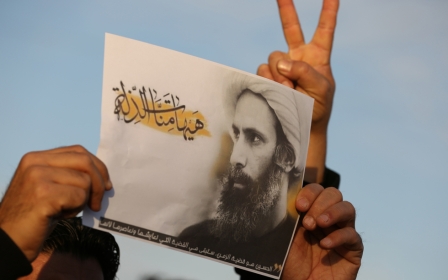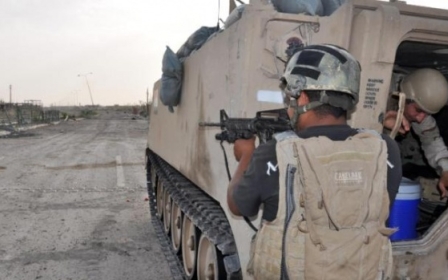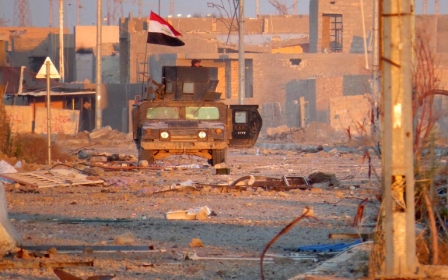Iraqi families risk all to flee IS-held Hawijah

Hundreds of families are fleeing hunger and Islamic State (IS) rule in the Iraqi city of Hawijah and surrounding areas, witnesses and officials said on Sunday.
Many have died on the perilous journey to reach Iraqi security forces, which have moved closer to Hawijah following recent gains against the group.
"These families walk for two days or more through the Hamreen mountains," Colonel Fattah al-Khafaji, the police chief in charge of the Hawijah region, told AFP.
The officer was speaking near al-Fatha, where security forces say they receive and assist families that have fled IS-held villages every day.
Umm Ahmed, a 31-year-old mother, lost her husband and one of her five children on the way from Hawijah.
"We fled the injustice of Daesh (IS)," she said. "We were nearly dying, we had very scarce food and little fuel."
The haggard-looking woman, wearing several robes on top of each other to protect herself from the cold, said a roadside bomb went off as her family marched towards deliverance.
"It killed my husband and our child, whom he was carrying on his shoulders," said Umm Ahmed.
"After the explosion, I shouted from the top of a hill: 'Come IS, come and kill us'. But nobody came," she said, explaining that she carried her son's body the rest of the way but had to leave her husband's behind.
Hawijah, around 220 kilometres (140 miles) north of Baghdad, is one of IS's strongholds but the noose is tightening around it, with Kurdish peshmerga forces holding positions north and east, and federal forces as well as tribal fighters inching closer from the south and west.
Boys enlisted
Most of the rescued civilians head to al-Alam, a town north of Tikrit on the eastern bank of the Tigris which has become one of the main hubs in the Salaheddin province.
"We have received around 2,200 families over the past two months from Hawijah, Zawiyah and various neighbouring areas controlled by Daesh," mayor Laith Hamid al-Juburi said.
Witnesses and officials said the families need to pay IS about $400 per individual to leave. The men and teenagers are not allowed to leave at all.
A resident of IS-controlled Hawijah, speaking to AFP on condition of anonymity for fear of reprisals, said dozens were detained during the past week.
He did not know the exact circumstances of their detention but said whoever tried to flee the area without paying faced death or captivity.
"The Islamic State has also made announcements on speakers lately demanding that all males aged 12 (and up) join their ranks to fight," he said.
According to security officials, the squeeze on sources and revenue and the heavy casualties inflicted by air strikes are putting huge pressure on IS across Iraq.
They are also taking a toll on civilians, with dwindling supplies of basic goods and IS fighters increasingly fearful the population will turn against them.
Sheikh Hatem al-Assi, head of the anti-IS Sunni tribal fighters cooperating with the Iraqi security forces in the area, said the exodus was claiming many lives.
"Many families have fallen on the road - under Daesh bullets or from roadside bomb explosions," he said.
The tribal leaders said he estimated that about 60 people had died attempting to flee in the past two months and around 10 were recaptured by IS.
Assi and other officials said around 17,000 families - or in the vicinity of 100,000 people - still lived in Hawijah and the 350 villages around the city.
Middle East Eye propose une couverture et une analyse indépendantes et incomparables du Moyen-Orient, de l’Afrique du Nord et d’autres régions du monde. Pour en savoir plus sur la reprise de ce contenu et les frais qui s’appliquent, veuillez remplir ce formulaire [en anglais]. Pour en savoir plus sur MEE, cliquez ici [en anglais].




